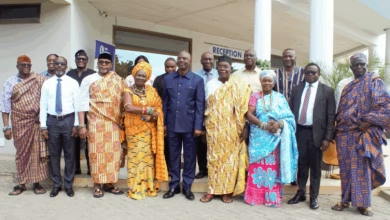“Afenyo-Markin Warns Politicians: Ignoring Global Info Analytics Research Will Backfire”

- Afenyo-Markin stresses importance of research findings.
- Poll shows tight presidential race between Mahama and Bawumia.
- Bediako gains support in various regions.
- Economy, jobs, and education are top voter concerns.
Alexander Afenyo-Markin, the Majority Leader in Parliament, has emphasized the importance of considering research findings from Global Info Analytics. He stressed that even if the data is unfavorable to his party, it remains a valuable tool for strategizing effectively for the upcoming election.
Afenyo-Markin attributed his political success over the years to data and warned that ignoring research findings would be detrimental to any politician.
The discussion comes amid questions about whether the NPP can “Break the Eight” by securing a third successive term. According to the poll, around 70 percent of voters believe the NPP cannot win the 2024 election, while 19 percent think the party can, and 10 percent have no opinion.
The latest poll by Global Info Analytics shows a tightening 2024 presidential race amid Vice President Dr. Mahamudu Bawumia’s nationwide tour. Bawumia has reduced John Dramani Mahama’s lead by approximately 3% compared to the April 2024 poll.
Mahama now leads Bawumia 51.1% to 38.2%, followed by Alan Kwadwo Kyerematen at 5.3%, Nana Kwame Bediako at 4.6%, and others at 0.8%. In a potential runoff scenario, Mahama stands at 52%, Bawumia at 42%, with 6% of voters undecided.
Nana Kwame Bediako is making significant gains in the Central, Ashanti, Eastern, and Volta regions, leading in the Abura Asebu Kwamankese and Kade constituencies. The Central region shows a dramatic shift, with Mahama dropping from 51% in April to 39% in July.
Bawumia recorded significant gains in the Ashanti region, now attracting 66% of the vote, up from 54% in April, while Mahama fell from 31% to 22%. Among first-time voters, Mahama and Bawumia are tied at 41% each.
Afenyo-Markin called on all politicians to take data from research seriously and to strategize based on it, rather than becoming complacent if the data appears favorable. He emphasized that data is crucial for effective political planning and ignoring it would be detrimental.
The economy, jobs, and education remain the three most pressing issues influencing voters’ decisions, with the economy at 73%, jobs at 69%, and education at 50%. Afenyo-Markin’s warning serves as a reminder to politicians to rely on data-driven strategies for success in the upcoming election.






